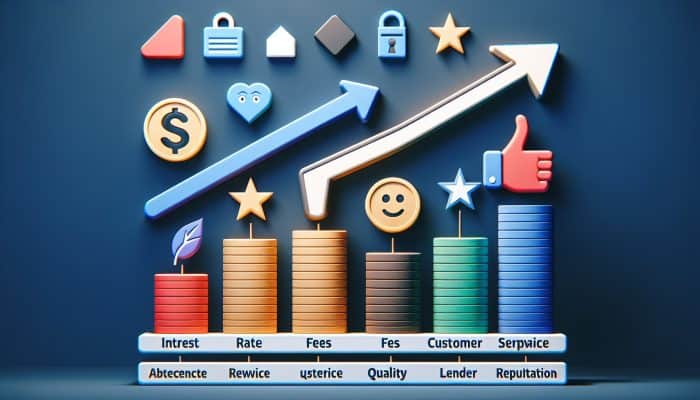Comprehensive Insights into Debt Consolidation Loans in the UK
Understanding Debt Consolidation Loans: Definition and Functionality

A debt consolidation loan is a powerful financial instrument designed for individuals aiming to merge multiple debts into one manageable loan. This financial strategy usually offers a lower interest rate compared to the cumulative rates of the original debts, making the repayment process more straightforward. By consolidating debts, individuals can significantly improve their financial management, ultimately regaining control over their financial affairs. Typical debts that borrowers often consolidate include:
- Credit card debt
- Personal loans
- Store card debt
- Medical bills
- Overdrafts
- Payday loans
- Student loans
By consolidating these diverse debts, borrowers can manage their repayments more effectively, alleviating the stress associated with juggling multiple payments and paving the way towards enhanced financial stability over time.
Exploring the Key Benefits of Debt Consolidation Loans
The foremost benefit of debt consolidation loans lies in their ability to simplify the management of finances. Instead of keeping track of several payments with varying due dates and amounts, borrowers can concentrate on making a single monthly payment. This streamlined approach not only facilitates easier budgeting but can also lead to substantial savings over time, especially if the new loan features a lower interest rate. Furthermore, consistent repayment of a consolidation loan can positively impact a borrower’s credit score by enhancing their payment history and lowering overall credit utilization, thereby cultivating a healthier financial profile.
Essential Steps to Qualify for a Debt Consolidation Loan
To qualify for a debt consolidation loan in the UK, lenders will evaluate several crucial factors, including the borrower’s credit score, income level, and debt-to-income ratio. To increase your chances of loan approval, consider following these essential steps:
- Review your credit report for any discrepancies and address any inaccuracies promptly.
- Pay off smaller debts to enhance your debt-to-income ratio, showcasing your financial responsibility.
- Maintain a consistent income to present reliability to potential lenders.
- Consider securing the loan with collateral, particularly if your credit rating is less than stellar.
- Research lenders who are willing to work with a range of credit histories and financial situations.
By taking these proactive measures, you can significantly boost your chances of securing loan approval and possibly receive more favorable loan terms.
In-Depth Analysis of Debt Consolidation Loan Reviews and Professional Opinions

Expert Insights on Debt Consolidation: What You Need to Know
Industry professionals often stress that while debt consolidation loans can offer considerable financial relief, they are not a one-size-fits-all solution. Many financial advisors advocate for a thorough evaluation of one’s financial circumstances before opting for consolidation. For instance, consolidating £15,000 of credit card debt into a personal loan with a significantly lower interest rate could yield thousands in savings over the life of the loan. However, experts also advise against the misconception that consolidation alone can rectify poor financial habits, recommending that borrowers implement better budgeting practices alongside consolidation for lasting financial health.
Evaluating Reviews for Debt Consolidation Loans: Best Practices
When assessing reviews for debt consolidation loans, it is crucial to consider the credibility of the source, the reviewer’s experiences, and the relevance of those experiences to your situation. Reviews from financial advisors or consumer advocacy organizations typically carry more authority than personal anecdotes that may lack context. Common pitfalls in reviews include anecdotal evidence that may not accurately reflect the broader customer experience. Thus, adopting a balanced perspective—considering both positive and negative feedback—is essential for making informed decisions that align with your financial objectives.
Critical Factors to Consider in Loan Ratings

Loan ratings assess several critical factors that play a significant role in a borrower’s decision-making process. Key components include interest rates, fees, the quality of customer service, and the overall reputation of the lender. To effectively compare ratings, potential borrowers should:
- Seek out reviews that specifically address loan terms and conditions.
- Compare interest rates across multiple lenders to pinpoint the most competitive offers.
- Evaluate customer service ratings, as responsive support can be crucial during the repayment phase.
- Investigate any hidden fees or charges that may affect the overall cost of the loan.
Understanding these factors enables borrowers to make informed comparisons and guides them toward the most suitable lenders and loan options tailored to their specific needs.
Leveraging Expert Insights for Informed Debt Consolidation Decisions
Expert insights can be invaluable when evaluating the advantages and disadvantages of debt consolidation options. By utilizing professional guidance, individuals can better understand whether consolidation aligns with their financial goals. For example, experts may recommend specific lenders based on a borrower’s unique credit profile or suggest alternative strategies if they perceive that consolidation may not be beneficial. Additionally, comprehending the broader implications of debt consolidation—such as its potential effects on credit scores and future borrowing capabilities—empowers individuals to make informed choices tailored to their financial circumstances.
Step-by-Step Guide to the Debt Consolidation Loan Application Process
Understanding the Application Process for a Debt Consolidation Loan
Applying for a debt consolidation loan involves several key steps designed to adequately prepare the borrower. Initially, evaluate your current debts to determine the total amount owed. Once you have a comprehensive understanding of your financial situation, the next step is to identify a lender offering competitive rates. The application process generally requires the following documentation:
- Proof of identity (e.g., passport, driving license)
- Proof of address (e.g., utility bills, bank statements)
- Income verification (e.g., payslips, tax returns)
- Details of existing debts (e.g., statements from creditors)
Completing the application accurately and thoroughly can significantly enhance the likelihood of receiving approval for your loan.
What to Expect After Your Debt Consolidation Loan Gets Approved
Following the approval of your debt consolidation loan, the subsequent steps involve utilizing the loan amount to pay off your existing debts. This is often executed directly, with the lender transferring funds to your previous creditors. Once this disbursement is made, you will commence repaying the new loan according to the agreed-upon terms. It is critical to adhere to the repayment schedule diligently, as missed payments can lead to severe repercussions, including detrimental effects on your credit profile. Regularly reviewing your repayment strategy ensures that you remain on track and fulfill your financial obligations.
Diverse Repayment Options for Debt Consolidation Loans
Repayment options for debt consolidation loans can vary significantly based on the lender’s policies. Common repayment structures include fixed monthly payments, which provide predictability, and variable rates that may fluctuate over time. Furthermore, some lenders offer the flexibility of early repayment without penalties, granting borrowers greater control over managing their loans. Understanding these repayment options is crucial, as they can greatly influence the loan’s manageability throughout its term. Before selecting a loan, consider which repayment structure aligns best with your financial habits and long-term objectives to ensure a sustainable repayment plan.
Recognizing the Potential Risks of Debt Consolidation Loans
Does Debt Consolidation Increase Your Debt Levels?
While debt consolidation loans can provide immediate financial relief, they may inadvertently lead to the accumulation of additional debt if not managed prudently. Borrowers might feel tempted to utilize credit cards that were previously settled, resulting in a scenario where they must manage both the new loan and supplementary debts. This underscores the importance of adopting responsible financial practices, such as diligent budgeting and refraining from unnecessary credit usage after consolidation. Being mindful of this risk can empower individuals to remain disciplined and committed to their long-term financial wellness.
Examining the Disadvantages of Debt Consolidation
Potential drawbacks of debt consolidation loans include the risk of incurring higher overall costs if the interest rate on the new loan does not represent a substantial reduction compared to previous debts. Moreover, if borrowers fail to make timely payments on the consolidation loan, it can negatively impact their credit score, undermining the intended benefits of consolidation. It is crucial to comprehend these risks; thus, borrowers should ensure they fully understand the terms of their new loan and remain vigilant regarding repayment schedules to effectively mitigate these potential downsides.
Avoiding Common Mistakes in Debt Consolidation
To steer clear of common pitfalls associated with debt consolidation loans, it is imperative to meticulously review all loan terms before making a commitment. This includes grasping the interest rate, related fees, and any potential penalties for missed payments or early repayments. Borrowers should also conduct thorough research into potential lenders to verify their credibility and ensure they provide clear, transparent terms. Engaging in financial education and seeking guidance from professionals can further empower individuals to make informed choices that lead to meaningful financial improvement and stability.
Understanding the Consequences of Defaulting on a Consolidation Loan
Defaulting on a consolidation loan can lead to serious repercussions. Such an event can severely damage your credit score, making it significantly more challenging to secure credit in the future. Additionally, lenders may resort to legal actions to recover the owed amount, which could involve pursuing wage garnishment or seizing assets. To mitigate these risks, borrowers should prioritize making timely repayments and proactively communicate with their lenders if they encounter financial difficulties, as many lenders offer assistance or alternative arrangements for borrowers facing hardships.
Research-Driven Benefits of Debt Consolidation Loans: Understanding Reviews and Ratings
Leveraging Reviews for Effective Loan Selection
Reviews provide invaluable insights into the experiences of other borrowers, aiding prospective clients in assessing lender reliability and overall customer satisfaction. For example, a borrower may discover that a lender known for exceptional customer service can significantly enhance the repayment experience. Real-world cases indicate that borrowers who thoroughly researched reviews before committing often report higher satisfaction levels and fewer issues after securing a loan. Therefore, utilizing these insights can facilitate more informed choices and contribute to a smoother debt consolidation journey.
Interpreting Ratings: What They Reveal About Loan Quality
Ratings serve as a quick reference point for understanding essential aspects of a debt consolidation loan, including interest rates and fees. A high rating may indicate a competitive offering, whereas a low rating could suggest potential issues or hidden costs. Expert analyses recommend that borrowers should not rely solely on ratings; instead, they should view them alongside comprehensive research and their personal circumstances. By interpreting these ratings thoughtfully, individuals can make more informed decisions that align with their financial objectives and needs.
Maximizing the Use of Reviews and Ratings in Decision-Making
To effectively leverage reviews and ratings in your decision-making process, concentrate on recent feedback, as it is more likely to reflect the current service standards of lenders. Look for trends in comments, such as recurring strengths or weaknesses highlighted by multiple reviewers, as these can provide deeper insights. Additionally, consider multiple sources for a comprehensive overview, including consumer review platforms, financial blogs, and online forums. This multifaceted approach ensures you are well-informed and empowered to select the best lender for your unique needs.
Recognizing the Limitations of Reviews and Ratings
While reviews and ratings can offer valuable guidance, they inherently have limitations. They may not accurately reflect your specific situation, as individual experiences can vary widely. Biases—whether positive or negative—can distort perceptions, and often, reviews may become outdated over time. Therefore, it is crucial to complement reviews with your own thorough research and financial analysis to reach informed conclusions regarding potential loans. Acknowledging these limitations can assist you in navigating the debt consolidation landscape more effectively and judiciously.
Research-Driven Benefits: Their Influence on Loan Decisions
Research-driven benefits provide evidence-based insights into the advantages of debt consolidation loans, empowering borrowers to make informed decisions. For instance, studies indicate that borrowers who consolidate their debts typically save money on interest payments, guiding individuals toward favorable outcomes. As a result, understanding these research-backed benefits allows individuals to recognize the potential positive impacts of consolidation, motivating them to engage in the process with confidence and clarity, ultimately leading to a healthier financial future.
Strategic Approaches for Evaluating Debt Consolidation Loan Reviews and Ratings
Identifying the Top Debt Consolidation Loans in the UK
Finding the best debt consolidation loans in the UK necessitates a strategic approach to comparing various options. Begin by evaluating interest rates from different lenders and assessing the overall fees associated with each loan. Ensure you understand the lender’s reputation by studying customer reviews and checking their standing with regulatory bodies. Furthermore, consider utilizing online comparison tools that streamline this process and provide side-by-side evaluations of loan offers. This comprehensive research will guarantee that you find a loan that aligns well with your financial circumstances and goals.
Best Practices for Reading Reviews Effectively
Best practices for reading reviews involve seeking a diverse mix of feedback from various sources to gain a well-rounded perspective. Pay attention to detailed reviews that provide context regarding the reviewer’s financial circumstances and the specifics of their loan, as this can help you relate their experiences to your own. Exercise caution when evaluating overly positive or excessively negative reviews, as they may not accurately represent the average customer experience. By critically assessing reviews, you can enhance your understanding of potential lenders and their offerings, leading to more informed decisions.
Making Thoughtful Decisions Based on Ratings
To arrive at a thoughtful decision based on ratings, first comprehend what those ratings specifically assess, such as interest rates, fees, and borrower feedback. Familiarize yourself with how ratings are calculated and consider their implications for your financial situation. It may also be beneficial to cross-reference ratings with specific customer reviews to gain deeper insights into the lender’s performance in real-world situations. By connecting ratings with comprehensive research, you can derive meaningful insights that facilitate better decision-making regarding debt consolidation loans.
Assessing Lender Credibility and Security Measures
Evaluating lender credibility involves examining their regulatory status, customer service ratings, and security measures for protecting personal financial information. In the UK, reputable lenders should be authorized and regulated by the Financial Conduct Authority (FCA). Additionally, assess customer feedback regarding their experiences with lender transparency and support. Ensuring that a lender prioritizes data security and has a solid reputation can significantly enhance your comfort level and confidence when proceeding with a debt consolidation loan.
The Influence of Customer Testimonials on Decision-Making
Customer testimonials provide valuable insights into real-life experiences with lenders and can significantly influence the decision-making process. Positive testimonials can highlight a lender’s reliability and high customer satisfaction, while negative feedback might expose potential pitfalls to consider. Testimonials often reflect the consistency of service, which is crucial for borrowers navigating their repayment journeys. Hence, considering these testimonials alongside reviews and ratings can help create a comprehensive picture of how a lender operates and whether they are the right fit for your debt consolidation needs.
Frequently Asked Questions Regarding Debt Consolidation Loans
What Exactly Is a Debt Consolidation Loan?
A debt consolidation loan effectively merges multiple debts into a single loan, typically offering a lower interest rate, thus simplifying the repayment process and enhancing financial management.
Who Qualifies for a Debt Consolidation Loan?
Eligibility generally hinges on your credit score, income, and debt-to-income ratio, which lenders consider to evaluate your suitability for the loan.
Are Debt Consolidation Loans Considered a Wise Financial Decision?
They can be beneficial for streamlining payments and reducing interest rates; however, they necessitate responsible financial habits to avoid the risk of incurring new debts.
What Should I Keep in Mind When Choosing a Lender?
Seek lenders that offer competitive interest rates, excellent customer service ratings, and clear, transparent terms. Ensure their regulatory status is verified for added credibility.
Is It Possible to Obtain a Debt Consolidation Loan with Poor Credit?
Yes, some lenders specialize in loans for individuals with poor credit; however, expect higher interest rates and less favorable terms as a result.
How Long Does the Approval Process Take?
Approval times can vary by lender, but many loans can be approved within a few days, contingent on the completeness of your application and accompanying documentation.
What Fees Should I Anticipate with Debt Consolidation Loans?
Fees may encompass origination charges, late payment penalties, and early repayment fees. Always scrutinize the loan terms for any hidden costs that may arise.
Is It Acceptable to Continue Using Credit Cards After Debt Consolidation?
While it is feasible, responsible financial practice generally advises against using credit cards after consolidation to prevent the accumulation of additional debt.
What Are the Implications of Missing a Payment?
Missing payments can result in late fees, increased interest rates, and potential damage to your credit score, making it essential to stay on top of repayments.
Is Debt Consolidation Equivalent to Bankruptcy?
No, debt consolidation is a strategy for managing debt, whereas bankruptcy is a legal process that can lead to asset loss and long-term negative credit implications.
Connect with Us on Facebook!
This Article Was First Found On: https://www.debtconsolidationloans.co.uk
The Article Debt Consolidation Loan Reviews: A Guide for the UK Was Found On https://limitsofstrategy.com




No responses yet